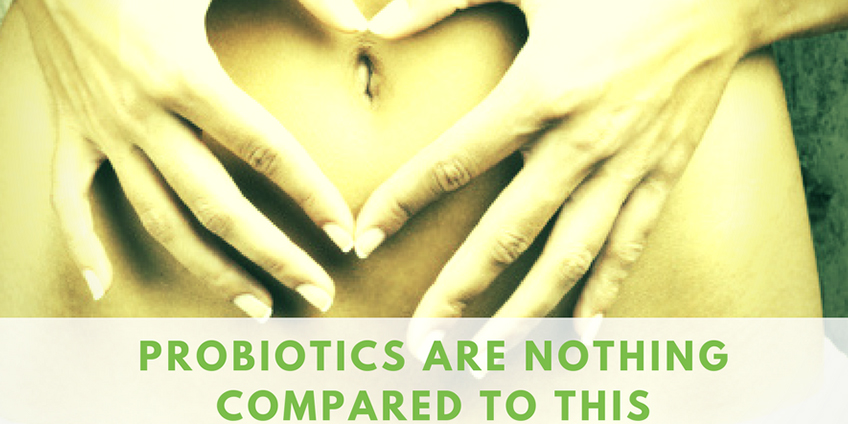Most people have heard the term, ‘probiotic’ at this point. Probiotics are good bacteria that help your gut function. Probiotics are live microorganisms that may be able to help prevent and treat some illnesses. Promoting a healthy digestive tract and a healthy immune system are their most widely studied benefits at this time. They are often sold in capsule form, and come in various “sizes” like 1 billion CFU (colony forming units) or 10 billion, even up to 250 billion CFUs.
But do you know what the ultimate probiotic is? Poo! That’s right! There are orders and orders of magnitude more beneficial probiotics in human poo than in any other known substance today… In fact, there is so much strength in human waste, that fecal transplants are now being done to kill off bad bacteria (you may have heard of c. diff infection), and kill antibiotic-resistant bacteria! The procedure is called a fecal transplant and fecal transplants are between 90%-95% effective at killing bad bacteria in the gut. Crazy right?
So why are fecal transplants so effective?
Let’s start with probiotics. A term most likely you’ve heard. Well just imagine that instead of ingesting a capsule of around 5 or 10 billion colony forming units (cfu’s) and 10-30 strains, of bacteria, placing somewhere on the order of 100s of TRILLIONs of cfu’s and 1000+ strains of bacteria…
Think of fecal transplants as probiotics on steroids….
And then multiply by a factor of a million! 🙂
So when antibiotics are introduced into a body, they destroy much of the bad AND good bacteria, and often the result is an overgrowth of the bad bacteria. This is where c. difficle and other bacteria, diseases begin to create a dysbiosis condition, where the good to bad bacteria ratio is imbalanced…
It is thought that this dysbiosis leads to an immune system response and is thus responsible for disease conditions and numerous disorders of the gut.
Researchers hope that by re-populating the gut not with just a few strains, but an entire community of functioning bacteria, will one day treat a host of diseases like: IBS, ulcerative colitis, autoimmune disease, chronic fatigue syndrome, celiac disease, obesity, food allergies, rheumatoid arthritis, diabetes and even Parkinson’s disease.
In my research, I came across a study done on Ulcerative Colitis that looks promising. In one study done by the DeVos Children’s Hospital, when nine children with UC received fresh daily fecal enemas for five days, seven of the nine (78%) showed a positive clinical response within one week. One month later, six of the nine (67%) maintained clinically responsive.
It’s not exactly a pleasant task, but many people who are desperate are now even doing these at home (not recommended)! These people are wanting for nothing less than an absolute, complete overhaul of their (or their loved ones) entire gut biome…
So…. you might be asking how this relates to YOU.
Well, it turns out that research being done currently is showing how important the gut is to not only our immune system, but also our emotional well being. It is estimated that we have each, around 5 pounds of bacteria in us at any one time! These living little communities inform many of our processes like hormone production, energy exchange, and other regulatory mechanisms.
Having good gut bacteria is important for a number of reasons. Think of your gut as a first-line defense for your immune system. If the bad guys get past the gut barrier and into the blood, then you’ve got issues. Not only that, bacteria is also responsible for converting certain nutrients into a usable form by the body.
How do you create good gut health?
Here’s a list:
To DO:
- Eat fiber-rich foods which give bacteria a great food source
- Consider eating fermented food like Tempeh, Sauer kraut, kimchi, natto, kombucha, kefir, etc.
- Consider adding a probiotic to your diet with a minimum of 15 strains of bacteria and at least 20 billion colony forming units.
- Use stress reduction techniques, get good sleep, and regular sunlight exposure.
- Eat organic as much as you can
- Play in the dirt and don’t go crazy with antibacterial hand soap or sanitizers!



